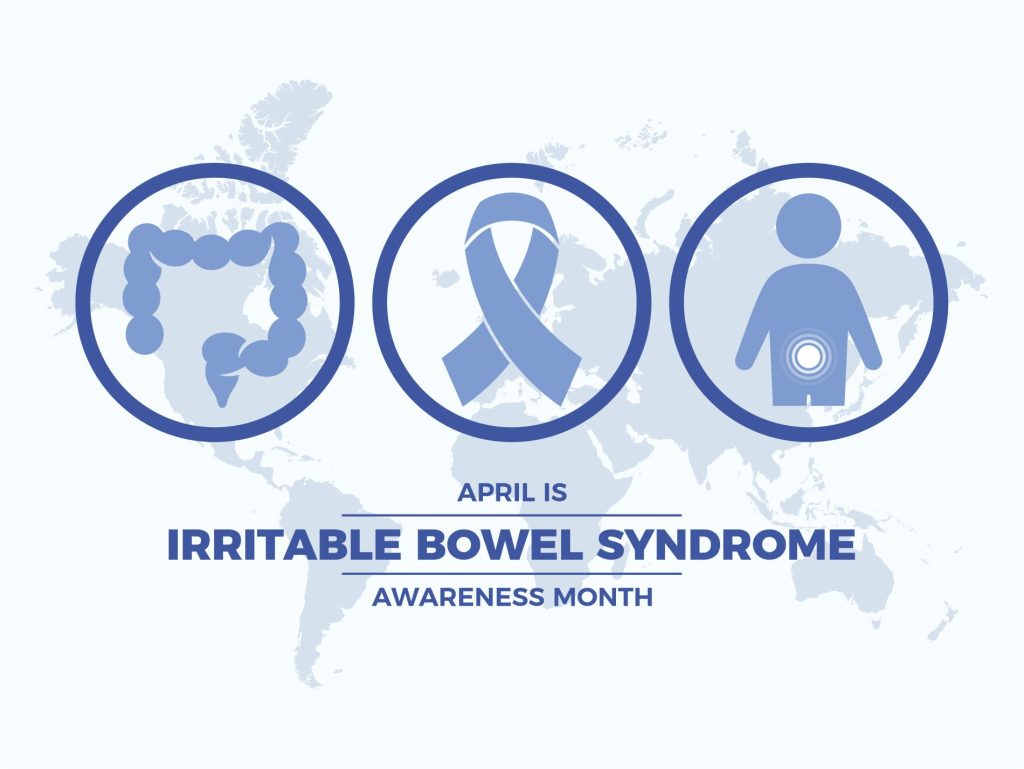
“In 1997, IFFGD designated April as IBS Awareness Month on the U.S. National Health Observances calendar. During April, we work to focus attention on important health messages about IBS diagnosis, treatment, and quality of life issues.” [1]
“April is Irritable Bowel Syndrome (IBS) Awareness Month. Worldwide, an estimate of 10 to 15% of the population is affected by IBS, and 25 to 45 million Americans currently live with this gastrointestinal (GI) disorder. Often, individuals who suffer from IBS find themselves on a quest for answers about their overall health, how to manage their symptoms, and treatment availability.” [1]
What is IBS?
“Irritable Bowel Syndrome (IBS) describes a collection of chronic symptoms occurring in the large intestine (colon). It is characterized by bloating, abdominal cramping, and a change in bowel habits. Constipation and/or diarrhea are a part of IBS. No one knows what causes the condition, although it’s more common in women than men.” [2]
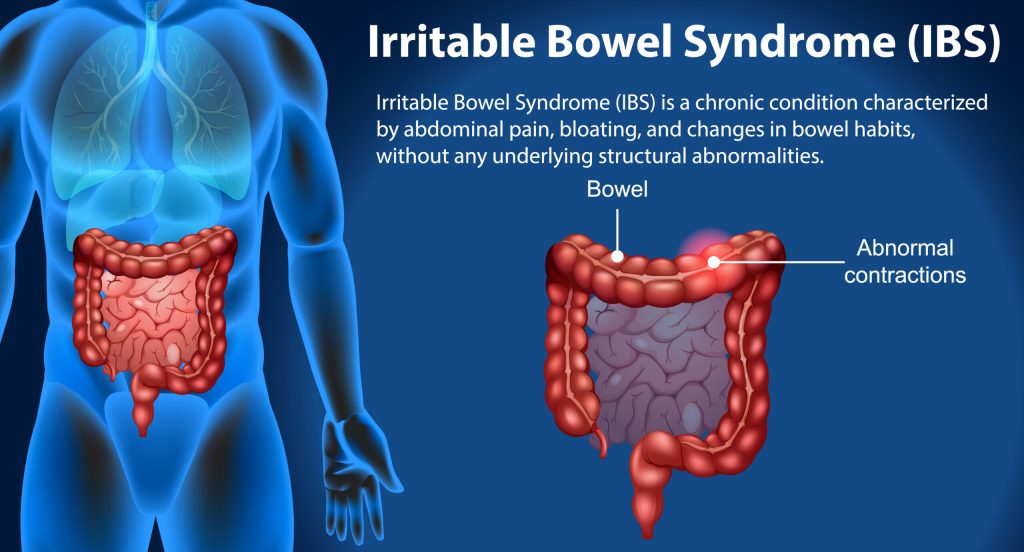
What are the symptoms of IBS?
“Symptoms can include:
- Constipation, diarrhea or a mixture of the two
- Abdominal pain
- Abnormal bowel habits
- Wind, bloating and distension (a widening of the firth of the abdomen)
- Pooing mucus
- 1/3 of IBS patients have bouts of constipation. Another 1/3 have bouts of diarrhea. The final 1/3 don’t fall into a single pattern.
- Feeling tired
- Nausea (feeling sick)
- Backache
- Bladder symptoms.” [3]
10 Most Common IBS Triggers
- “Stress and anxiety
- Eating too quickly
- Hormone imbalance like hyperthyroidism and others!
- FODMAP foods
- Medication (like antibiotics, antidepressants)
- Poor sleep
- Eating large meals
- Sedentary lifestyle
- Alcohol
- Caffeine.” [8]
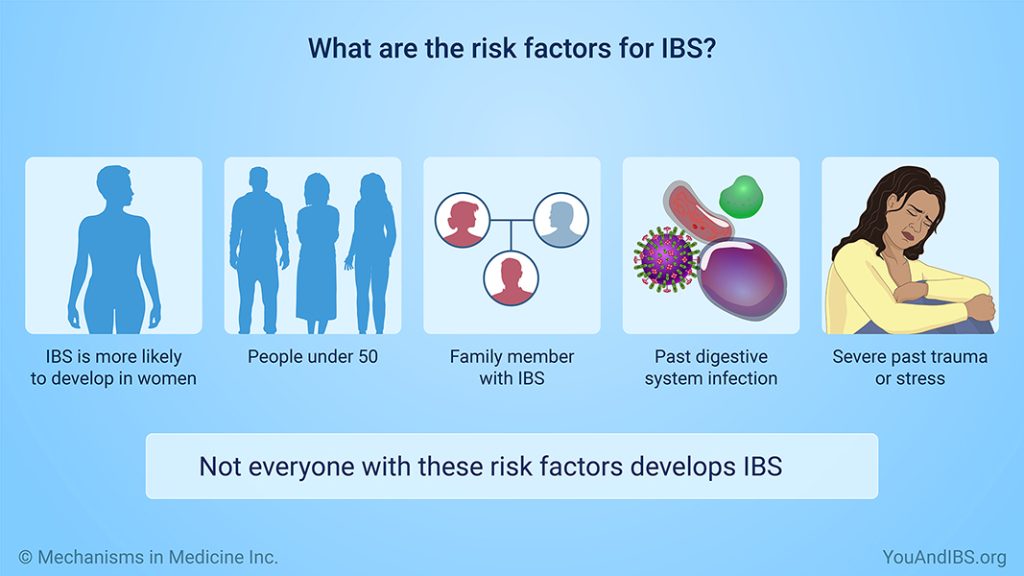
Managing Symptoms of IBS
“Beyond the Diagnosis: Strategies for Managing IBS Dietary Modifications: Identifying and Avoiding Food Triggers
Diet plays a pivotal role in managing IBS. Strategies include:
- Following a Low FODMAP diet to minimize gas-producing foods.
- Keeping a food diary to identify specific triggers.
- Incorporating soluble fiber for digestive support.
Stress Management Techniques: Reducing Anxiety and Its Impact on IBS Stress exacerbates IBS symptoms. Effective stress management includes:
- Practicing mindfulness meditation or deep breathing.
- Engaging in regular physical activity like yoga or walking.
- Seeking professional counseling for anxiety or depression.
Exploring Complementary Therapies: Mindfulness, Yoga, and IBS Relief
Emerging research highlights the benefits of complementary therapies for IBS, including:
- Acupuncture to reduce gastrointestinal discomfort.
- Yoga improves gut motility and relieves stress.
- Probiotics to restore healthy gut flora.” [4]
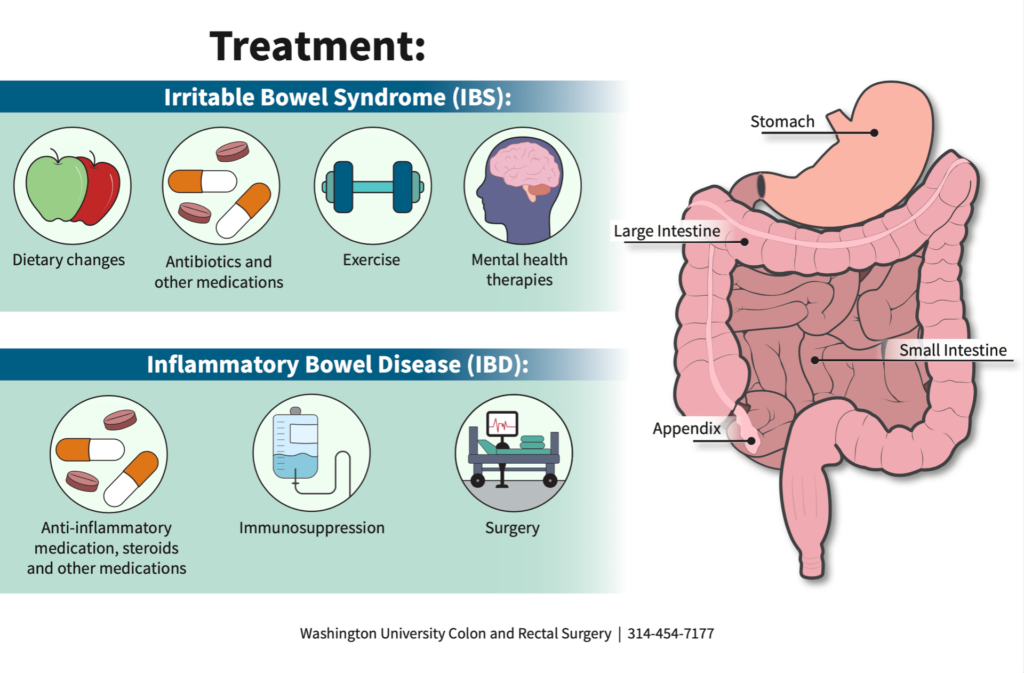
Potential future treatments
“Researchers are investigating new treatments for IBS, such as fecal microbiota transplantation (FMT). Considered investigational at this time, FMT restores healthy intestinal bacteria by placing another person’s processed stool into the colon of a person affected by IBS. Clinical trials to study fecal transplants are currently underway.” [6]
How do I get rid of IBS permanently?
“There is currently no cure for IBS and no way to permanently get rid of it. Treatment is aimed at symptom relief and prevention.” [7]
Is IBS a protected disability?
“Irritable Bowel Syndrome (IBS) Is Considered a Disability … Yes, irritable bowel syndrome (IBS) can be considered a disability under the Americans with Disabilities Act (ADA) and may qualify for Social Security disability benefits.” [5]
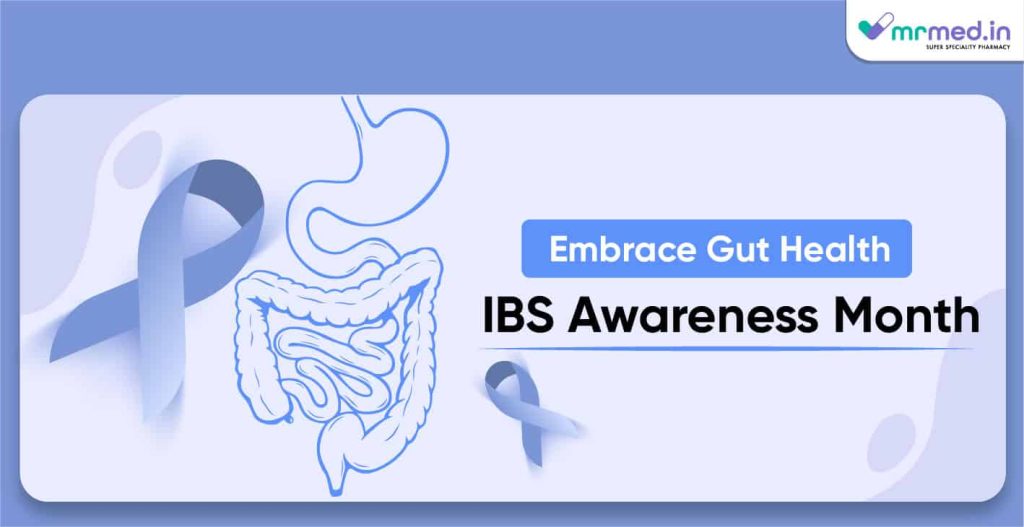
April is IBS Awareness Month
“IBS symptoms will present differently in different people. The exact cause of IBS is unknown, but the condition has been linked to certain foods and mood disorders. It is important to track your flare-ups to help understand your triggers.” [7]
“As we observe International IBS Awareness Month this April, let’s come together to help spread knowledge about this condition so those suffering from its uncomfortable symptoms can find the relief they deserve through lifestyle changes and appropriate treatments. By increasing our understanding of Irritable Bowel Syndrome, we can empower ourselves, our families, and our communities with valuable information about how best to manage this often-invisible illness. Together we can make a positive difference!” [8]
Resources
[1] https://iffgd.org/wp content/uploads/IFFGD_IBS_Awareness_Month_2020_Media_Toolkit_Final.pdf
[2] https://gastrohealthpartners.com/ibs-awareness-month/
[3] https://gutscharity.org.uk/awareness/ibs-awareness-month/
[5] AI Overview
[7] https://www.healthline.com/health/irritable-bowel-syndrome#fa-qs
